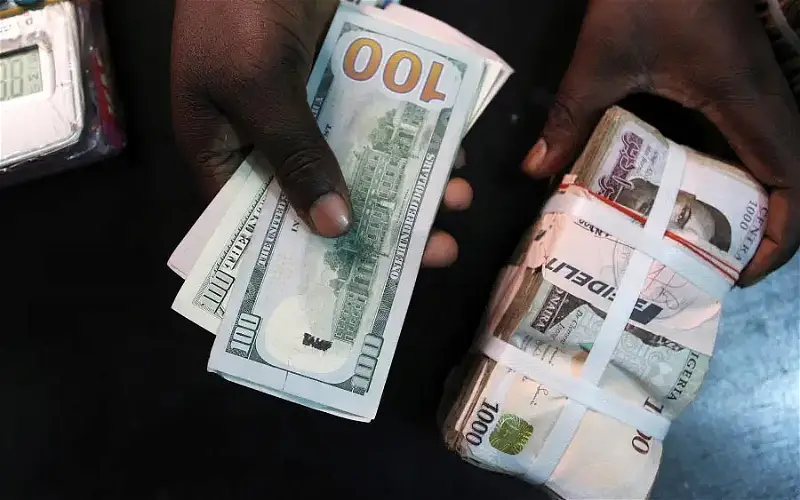
The crises festering in Nigeria’s currency exchange market doubled down yesterday with the local currency depreciating further across all segments of the market.
Vanguard’s monitor of the market yesterday indicated that the Naira went down from N1,100 to USD1.0 mid-day in the parallel market before settling at N1,060 in the major trading hubs in Lagos. It had hovered around N1,025 in the past month in the parallel market.
Though the exchange rate at the official Nigerian Forex Market, the Investors & Exporters (I&E) window gained some respite hovering around N790.61/ $1 yesterday after the downward rate of N848/$1 the previous day, the yesterday rate remained much higher than last week’s level while dealers expected further depreciation from today.
This is coming on the heels of manufacturers calling for the reversals of the Central Bank of Nigeria, CBN, decision to return the 43 items it had earlier banned from its foreign exchange window.
They said the ban was necessary in order to save the nation from looming job crisis, insecurity and collapse of the nation’s economy.
Meanwhile, the Vice Chairman of the Basic Metal, Iron and Steel Products sector of the Manufacturers Association of Nigeria (MAN), Mr Lekan Adewoye, while speaking on a TVC Business Programme, said: “For items that can be produced in Nigeria, such manufacturer ought to be encouraged. This directive will further kill the manufacturing industry that is already struggling to survive. The problem is about policy somersaults, some of our members who have outrightly invested in backward integration will now start to regret this move because everyone who can assess FOREX will claim to be an importer, forcing sincere manufacturers to close shop and increasing the numbers of jobless persons.”
“Nigerian manufacturers don’t really have any competitive advantage over those in other developing countries, at best, what you have is competitive parity, because something has to be an advantage if your competitors don’t have it. And the little incentive that government has provided now it has been removed by the directive from the Central Bank of Nigeria.”
Speaking further on why manufacturers are leaving the country, Adewoye said: “Lack of consultation, I can speak for manufacturers because we always try our best to engage the government on some critical issues and decisions, but when some of these decisions are being taken, manufacturers are not being consulted.


